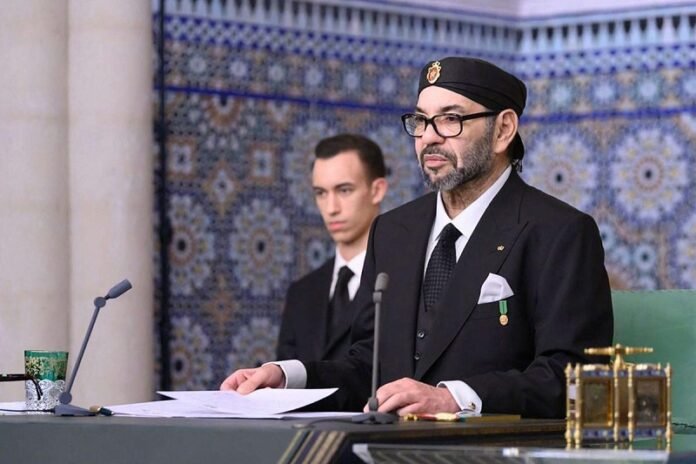On Monday, August 25, the French newspaper Le Monde published a lengthy article about King Mohammed VI titled: “The Atmosphere of the End of Mohammed VI’s Reign”, focusing on the king’s health and his frequent travels, implying they may have affected his exercise of power. A careful reading, however, reveals a series of exaggerations and a lack of any new information about the king, relying instead on re-published data previously circulated in other media, including Moroccan press.
What Le Monde Said vs. Reality
Le Monde suggests that the king’s illness and frequent travels have caused him to distance himself from power, a conclusion that is not supported by field facts. The reality on the ground is completely different:
-
King Mohammed VI has not missed any constitutional or official duty. He attended ministerial councils, parliamentary openings, religious and national events, and major international summits, such as the COP22 climate conference in Marrakech in 2016.
-
The king’s public appearances during his surgery and his reception of official guests while using his cane demonstrate his commitment to his duties despite any personal health conditions.
Misapplying the French Experience to Morocco
Le Monde partly relies on a comparison with French presidents, who tend to hide their illnesses, such as Charles de Gaulle and François Mitterrand, implicitly concluding that the king has “stepped back from power.” This approach reflects an attempt to impose a Western cultural model on the Moroccan context, ignoring the monarchy’s unique nature and transparency in communicating with the public.
History and Lessons
The article ignores the historical dimension of the Moroccan monarchy, where kings have faced health challenges and difficult situations without destabilizing the state:
-
Example: The Battle of the Three Kings (1578), when Sultan Abd el-Malik died in combat, yet the state maintained leadership stability and achieved victory.
This historical context highlights Morocco’s ability to separate the king’s individual crises from the continuity of the state and its institutions.
The Moroccan People and Popular Legitimacy
Any analysis must consider popular legitimacy, as the support of the Moroccan people for the king is a central element of state stability. The French article neglected this dimension, focusing solely on the king’s health, potentially misleading uninitiated readers into believing that the monarchy is at risk.
Conclusion
What Le Monde published falls within a pattern of exaggerations and partial analyses, overlooking the full context and practical facts. Illness and travel do not signify an absence of responsibility, nor do they threaten the stability of the Kingdom of Morocco, which continues to maintain political and social balance and implement national and international projects.
Key Lesson: Western media should approach the Moroccan context with greater professionalism and rely on field facts, rather than applying external national or personal experiences to a completely different reality.


